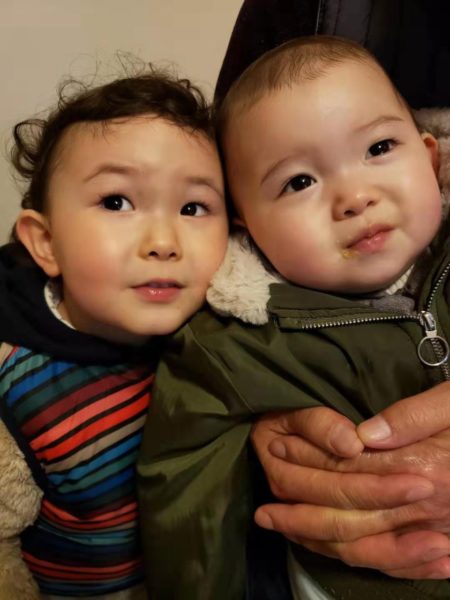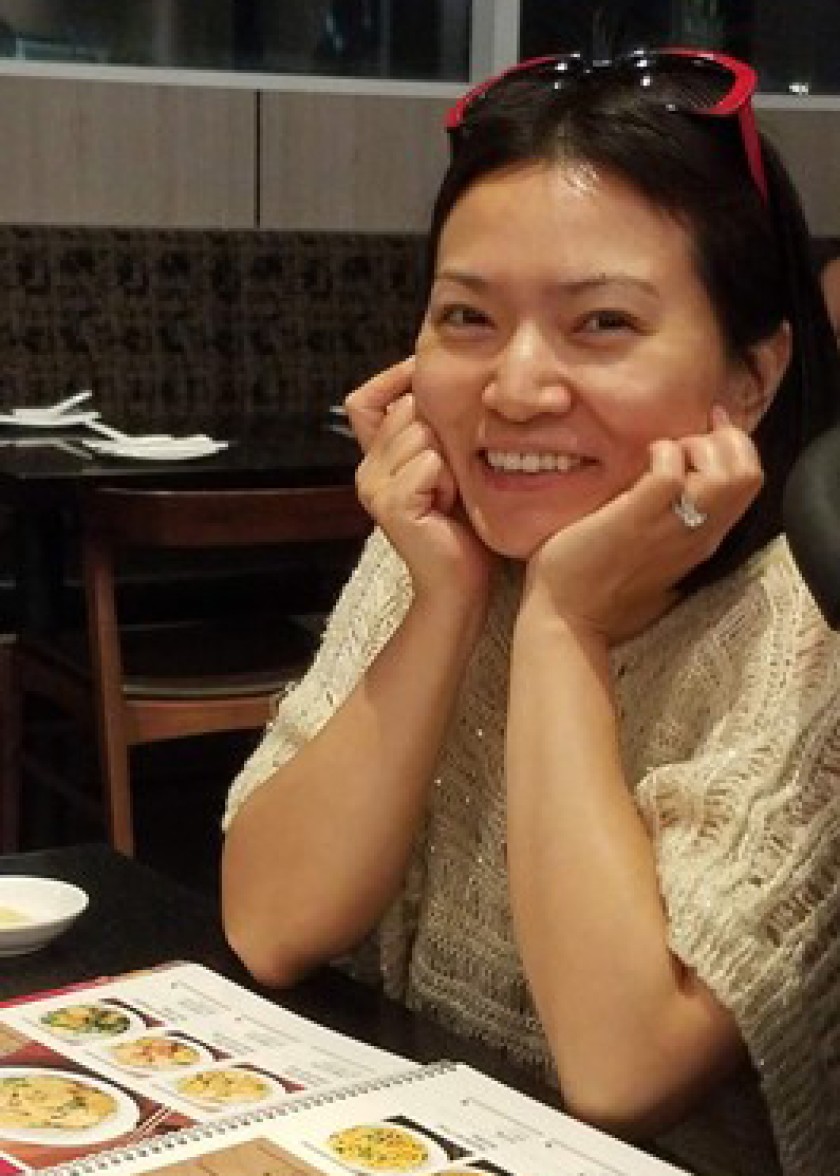
San Diego resident Yanjun Wei traveled with her two small children to the city of Wuhan to celebrate the Chinese New Year with her parents.
Now the family is holed up in a high-rise apartment building in the megalopolis, believed to be ground zero of the deadly coronavirus outbreak that’s killed more than 200 people and sickened thousands.
Over the last week, the Chinese government has put the urban area’s 11 million people under an unprecedented quarantine. Commercial flights, public transportation and even major roads have been shut down, leaving the usually bustling city eerily quiet, according to numerous accounts.
“I’m trying not to be emotional here,” said the 37-year-old Wei, tearing up during a video interview with the Union-Tribune using the social-media app WeChat.
“I don’t even have words to describe it,” she added, saying she fears deeply for the health of her 3-year-old son Rowan and 1-year-old daughter Mia.
She said she has been reluctant to even take her children to the park or for a short walk, which has proved challenging as her son has become increasingly rambunctious.

Rowan Burnett, 3, Mia Burnett, 1, and their mother Yanjun Wei are stuck in Wuhan, China, because of the Coronavirus outbreak. They have been there since November, and were planning on coming back to San Diego next week.
(Courtesy of Ken Burnett)
Wei said that most of the neighbors in the building where her parents live are also staying cooped up in their apartments, relying on WeChat to socialize and share information.
However, as food for the children has run low, her 64-year-old mother has ventured outside to shop for groceries — a process they’ve learned can be challenging.
Wei said people have started queuing up at markets long before they open, as entire stores can be quickly cleaned out.
“You have to be there a couple hours ahead, and once they open the doors imagine a group like an army running in there and grabbing stuff,” she said.
The only immediate way out for Wei and her children would be to secure a spot on a private plane chartered by the U.S. State Department.
The federal government evacuated about 200 American citizens on a flight that landed in Southern California on Wednesday, including diplomats who had been working at the U.S. Consulate in Wuhan and their families. Passengers are now being voluntarily held and monitored for three days at the March Air Reserve Base east of Los Angeles.
There were reportedly about 1,000 American citizens living in the metropolitan region of Wuhan before the outbreak.
Other nations have organized similar evacuation flights, quarantining people to various degrees upon arrival in their home countries.
The World Health Organization announced Thursday that the coronavirus outbreak was a “public health emergency of international concern.” Officials have specifically expressed worry about the potential for the illness to spread to developing nations that have limited access to health care.
The illness can cause pneumonia and respiratory failure, according to public health officials. Those infected may first exhibit a number of flu-like symptoms, including runny nose, fever and cough.
At home in San Diego, Wei’s husband Kenneth Burnett said he’s been calling and emailing the U.S. State Department nonstop.
He had been planning on joining his family in China for the new year celebration, with the family all returning together next week, when the outbreak hit.
“I don’t sleep,” he said at their home in the Serra Mesa neighborhood. Car seats, diapers and other baby supplies lay scattered across the living room, ready to be loaded up at a moment’s notice.
“I was trying to get some things ready if there was a chance because they evacuated some people,” said the 45-year-old, looking deeply rattled.
“You’re thinking, there’s got to be a way,” he added.
So far, the family hasn’t heard anything from the federal government about their chances of securing seats on a flight back to the states. Complicating the matter, Wei said that while both her children are U.S. citizens, she is a legal resident of the U.S. She said she was scheduled to take her citizenship test in February.

Yanjun Wei and her two U.S. born children are stuck in Wuhan, China, because of the Coronavirus outbreak. They have been there since November, and were planning on coming back to San Diego next week.
(Courtesy of Ken Burnett)
In response to questions from the Union-Tribune about how evacuees are being selected, the State Department released this statement: “Priority was given to vulnerable individuals at higher risk from coronavirus: small children, older adults and persons with other health conditions that put them at greater risk.”
That response has frustrated Burnett and Wei, who said they have yet to receive any contact from the federal government outside of mass emails.
“When they’re saying priority will be given to higher risk groups, anyone normal would think our kids would be given this priority — a 1-year-old and a 3-year-old,” Wei said.
“I don’t know if they were ignoring us or they saw our request,” she added.
Wei said a friend recently shared an official-looking notice through WeChat that said the highways around Wuhan would be closed from Jan. 24 to April 23.
Burnett says he’s trying accept that his family could be stuck in Wuhan for several months, but the idea is deeply disturbing.
“You do think what would happen if her parents got sick, she got sick,” he said. “Who’s going to take care of them? The hospitals have, like, dead bodies laying in the hallways. You go there, you’re going to get infected.”
The Chinese government is now building two new hospitals in Wuhan to service those suffering from the virus. Both medical facilities are expected to be open by the end of next week.